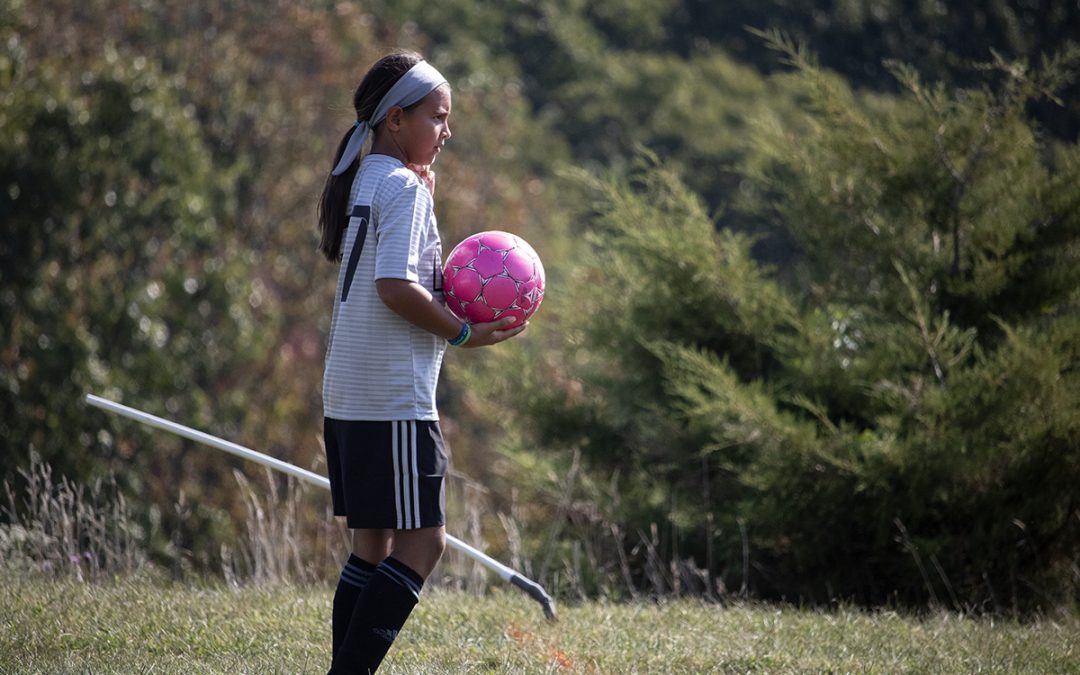When my daughter was six, a man approached me following her rec soccer game. He had a form and asked if she was registered for travel soccer. I said, “No,” and indicated that I didn’t feel she was ready.
He followed up with, “I just watched her play and she’s ready. If she doesn’t start now, it’s going to be too late.” And my response was, “Too late for what?”
He didn’t answer. I think the man had good intentions, but the message he was selling was baseless and is a systemic issue throughout youth sports. The veiled threat is, if you don’t get on this bus right now – invest major time and a financial commitment with no distinct destination – your child will be left behind.
That is simply untrue, and parents should never make decisions based on guilt or fear of the unknown. Those are two emotions that cloud judgement.
To be clear, my six-year old daughter was not ready for travel sports. That doesn’t mean other kids that age aren’t ready. Some kids can’t get enough of a sport, and as parents, it’s exciting when your child shows interest in something. The athletic fields are filled with learning experiences.
In my case, however, I trusted my assessment of my daughter more than the two-minute evaluation of the guy holding the registration form. And my assessment had little to do with soccer skills and more about what my kid had shown to that point.
- She only liked playing games.
- We had to force her to attend one practice per week.
- She didn’t get upset when a game was rained out.
- Her play lacked intensity.
Those, to me, were indicators that she wasn’t ready for, or interested in, more. When it comes to sports, the emphasis should not be placed on how or when they start, but rather how and when they finish. Pushing for a fast start because others are doing it can result in a premature finish.
Too late for what?
So back to the original comment, “It’s going to be too late.” That’s a strong statement and a little presumptuous, isn’t it? It assumes that my objectives for what travel sports can do for my daughter are directly aligned with the goals of the man holding the form.
Objectives can differ for everyone, even within members of the same family. There’s really no right or wrong answers. But parents should define what they want their kids to get out of sports, so it’s easier to make sound decisions. Don’t allow the sport or sports figures to determine your objectives.
I’ll share the top 5 things I’d like my kid to gain from sports:
- Exercise – It’s not just intense physical exercise, but mental exercise in discipline, quick decision-making, and imagination.
- Conflict – Dealing with failure, handling pressure, and encountering aggression are at the top of that list. They will help to develop coping skills.
- Identity – Having an identity is important for everyone, particularly for youth entering their teen years.
- Challenge – Being challenged by better competition will expose weaknesses, and ultimately, make you a better, smarter player.
- Moments – Sports offer moments that can be exhilarating and create memories. It’s hard to replicate the pure emotions that derive from competing in sports.
Parents should trust themselves more when it comes to these decisions. You don’t have to be an expert in the sport, just in your kid. Trust your instincts and what you know, rather than have others dictate what’s right for your kid. Always listen, but in the end, own the gavel!
And hey, maybe there’s never a time. Travel sports aren’t for everyone.
Fast forward four years and my daughter is now 10. She’s playing on a travel soccer team for the first time and it’s been a terrific experience thus far. Her last practice was rained out and she asked when it would be rescheduled.
If it’s rescheduled one thing is for certain – it won’t be too late for her.
Next week’s blog on deck – The Era of MAthletics
In the hole – How pitch count obsession has infected hitting approach

